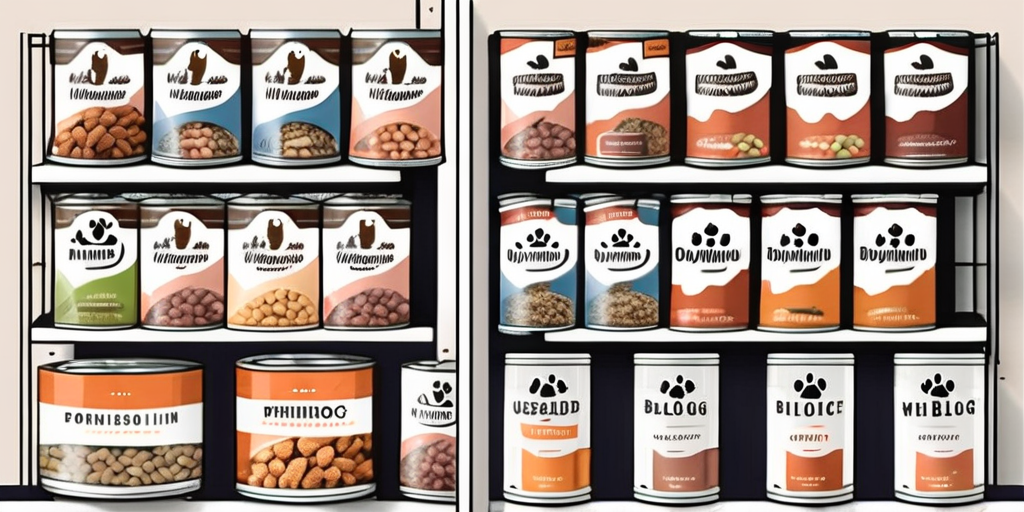The Chihuahua, a small breed of dog named after the Mexican state of Chihuahua, is known for its lively personality and diminutive size. Despite their small stature, these dogs require a balanced and nutritious diet to maintain their health and vitality. In this guide, we will explore the factors to consider when shopping for the best dog food for your Chihuahua.
Understanding Your Chihuahua’s Nutritional Needs
Chihuahuas, like all dogs, require a balanced diet that includes proteins, carbohydrates, fats, vitamins, and minerals. However, due to their small size, they have unique dietary needs that differ from larger breeds.

Protein is essential for muscle development and energy. Chihuahuas, despite their size, are active and energetic dogs that require a high-protein diet. Look for dog foods that list a high-quality source of protein, such as chicken or beef, as the first ingredient.
Carbohydrates provide energy and help with digestion. However, not all carbohydrates are created equal. Avoid dog foods with fillers like corn and wheat, as these can lead to obesity and other health issues. Instead, opt for foods with complex carbohydrates like sweet potatoes and brown rice.
Fats and Omega Fatty Acids
Fats are another crucial component of a Chihuahua’s diet. They provide energy, help absorb vitamins, and contribute to a healthy coat. Look for dog foods that contain a balance of omega-3 and omega-6 fatty acids. These can come from sources like fish oil and flaxseed.
While fats are important, it’s crucial to monitor your Chihuahua’s fat intake. These small dogs are prone to obesity, which can lead to serious health issues like diabetes and heart disease. Aim for a diet that is moderate in fats and low in calories.
Vitamins and Minerals
Vitamins and minerals are essential for a Chihuahua’s overall health. They support various bodily functions, including bone health, vision, and immune function. Look for dog foods that contain a variety of vitamins and minerals, such as vitamin A, B vitamins, calcium, and iron.
It’s also worth noting that Chihuahuas can be prone to dental issues due to their small mouths. Foods that are designed to promote dental health can be beneficial for this breed.
Choosing the Right Type of Dog Food
There are several types of dog food available on the market, including dry kibble, wet food, and raw food. Each type has its pros and cons, and the best choice will depend on your Chihuahua’s specific needs and preferences.

Dry kibble is the most common type of dog food. It’s convenient, affordable, and can help keep your Chihuahua’s teeth clean. However, some kibbles can be hard for small dogs like Chihuahuas to chew. If you opt for kibble, look for one that is specifically designed for small breeds.
Wet Food
Wet food is another option. It’s more palatable than kibble, which can be beneficial for picky eaters. It also provides hydration, which is especially important for dogs that don’t drink enough water. However, wet food is more expensive than kibble and doesn’t provide the same dental benefits.
If you choose wet food, consider combining it with kibble for a balanced diet. This can provide the benefits of both types of food.
Raw Food
Raw food diets are becoming increasingly popular among dog owners. Proponents argue that raw food is more natural and healthier for dogs. However, raw diets can be risky due to the potential for bacterial contamination. They also require careful planning to ensure they provide all the necessary nutrients.
If you’re considering a raw diet for your Chihuahua, consult with a veterinarian or a pet nutrition expert first.
Reading Dog Food Labels
Understanding how to read dog food labels is crucial when shopping for the best food for your Chihuahua. Labels provide information about the ingredients, nutritional content, and feeding guidelines of the food.
The ingredients are listed in descending order by weight. The first ingredient is the one that makes up the largest portion of the food. As mentioned earlier, look for a high-quality source of protein as the first ingredient.
The nutritional content section, also known as the guaranteed analysis, provides information about the percentages of protein, fat, fiber, and moisture in the food. Compare these percentages with the nutritional needs of your Chihuahua to ensure the food provides a balanced diet.
Feeding guidelines provide a starting point for how much food to feed your Chihuahua. However, these are just guidelines. The exact amount will depend on your dog’s age, weight, activity level, and health status. Consult with your vet to determine the right amount of food for your Chihuahua.
Conclusion
Choosing the best dog food for your Chihuahua involves understanding their unique nutritional needs, choosing the right type of food, and knowing how to read dog food labels. By considering these factors, you can ensure your Chihuahua gets a balanced and nutritious diet that supports their health and vitality.
Remember, every dog is unique. What works for one Chihuahua might not work for another. It’s important to monitor your dog’s health and adjust their diet as needed. If you have any concerns or questions about your Chihuahua’s diet, don’t hesitate to consult with a veterinarian or a pet nutrition expert.
Join the BreedRead Community
Now that you’re equipped with the knowledge to choose the best food for your Chihuahua, why not continue to enhance your pet care skills? Subscribe to the BreedRead free newsletter and gain access to a wealth of information tailored to your dog’s breed. From expert care tips to nutritional advice, BreedRead.com is your go-to source for all things related to your canine companion. Stay informed, keep your Chihuahua healthy, and join a community of passionate dog lovers just like you.

